The Value of Free: Lessons from Tubi’s Success
When everything nowadays is a paid subscription, it’s important to recognize how Tubi discovered a different path to success…
by Fred Jacobs of Jacobs Media
These days, it seems like everyone’s running the subscription business model – even car washes.
And they’re stirring up more than just occasional consumer complaints. Cities and municipalities are in an uproar because more and more of these businesses are springing up in smaller towns. Aside from using up a lot of land, they create few jobs.

In spite of the critics, Bloomberg reports automated car washes are now a $14 billion industry, a market predicted to double by 2030. In fact, these businesses have become so profitable, private equity has jumped in with both feet. And they’re another example of a business vertical that’s been reinvented by monthly subscription packages.
That’s no surprise. We’ve been talking about the “subscription economy” for years now. First, it was Sirius and XM, the two satcasters that originated the pay-for-content-monthly wave as we’ve come to know it. Later, Netflix revolutionized the way we watch TV with their well-known subscription model, still leading the way today.
The floodgates are wide open. A recent Forbes Home study reports the average U.S. household has nearly three media subscriptions, now paying roughly $46 per month for content. As you might expect, many have become disgruntled with those economics. We’ve been tracking subscription dissatisfaction levels in Techsurvey for several years now, and the further we get from the pandemic, the more consumers express concern: We’ve now hit an all-time high – or low – as three in four core radio listeners are not the least bit copacetic with their content subscription burden:
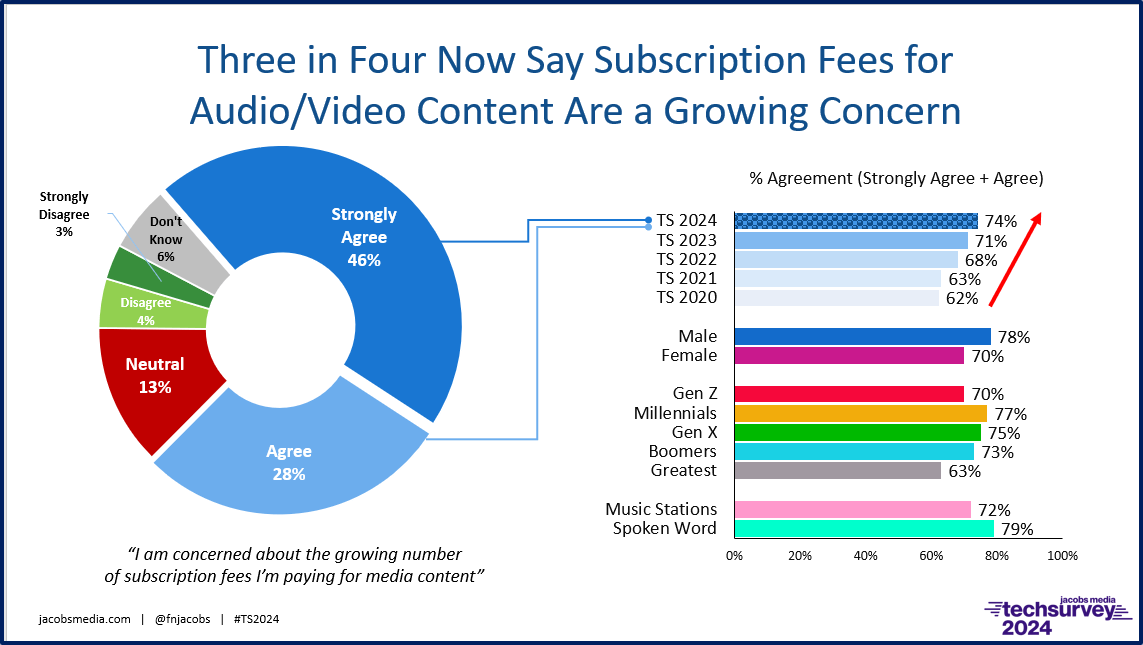
Into the fray steps Tubi. If you haven’t heard about this free streaming television service, you will. A story that ran last week in the LA Times by Stuart Battaglio charts Tubi’s impressive run.
By taking the contrarian approach to video streaming with an ad-supported service, last month Tubi hit the 1 million viewer threshold. Not only is that a year-over-year spike for Tubi, but the upstart passed Disney+, Peacock, Max, and Paramount+.
As Battaglio points out, “In the era of ‘streamflation,’ it’s good to be Tubi.”
Indeed. Tubi’s unconventional approach comes at just the right time for consumers looking for something to watch on TV, but fed up with having to pay for it.
At a time when ad sales for media brands are generally puny industry-wide, Tubi is bucking that trend. Their viewership is also young – a median age of just 39 years-old – and it’s also more diverse. And Tubi is doing it with a wide spread of content offerings hitting all sorts of genres and subgenres, including Blaxploitation, to set them apart from other nondescript video streaming brands.
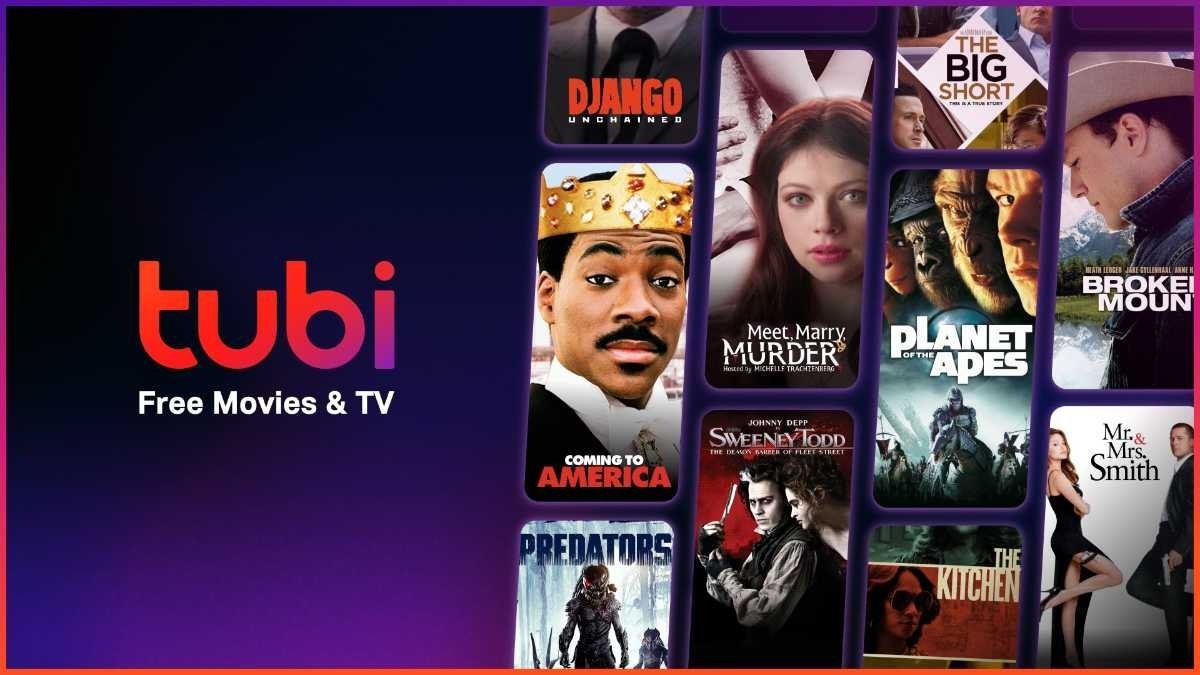
But it’s the word “free” that is the keyword in Tubi’s marketing. More often they lead with it in their ads and promos.
Or using “free” in a clever slogan like;
“You free tonight? Because we are.”
Interestingly, the Tubi community boasts lots of cord-cutters, but also “cord-nevers” – folks who have never shelled out money to subscribe to content. Tubi is just what their budget ordered, and watching on-demand turns out to be where 90% of viewing originates. In many ways, Tubi is giving “everybody else” somewhere to go.
And they’re doing it with dash and style. Consider these outdoor ads Tubi ran a few years back in large U.S. markets:
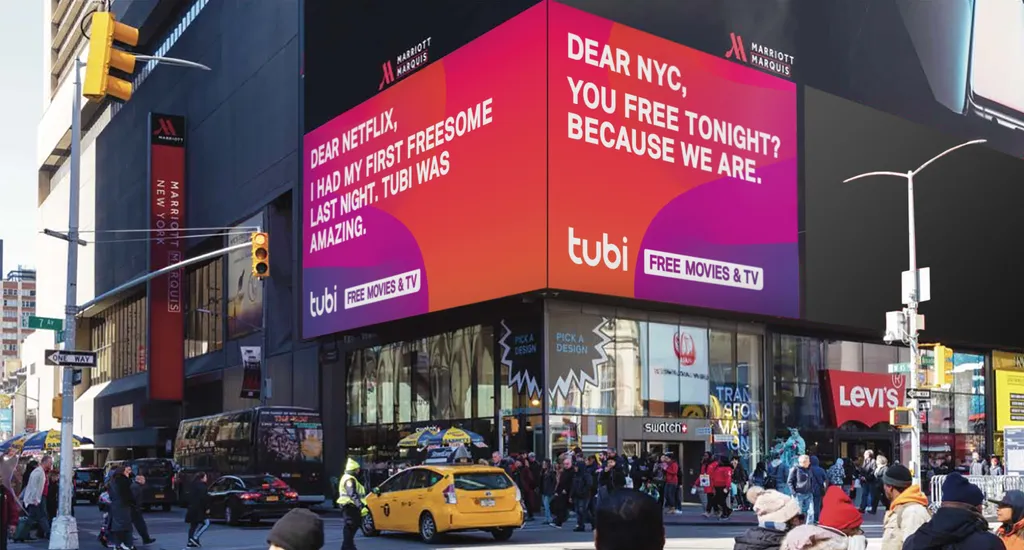
Which brings us to radio – broadcast radio, that is.
The analogies with Tubi are numerous and compelling. As we see every year in Techsurvey, the fact radio is free is one of the top two reasons why core listeners love the medium.
Right alongside “easiest to listen to in the car,” radio’s “free” status emerges as a strategic “steel sword” that separates AM/FM from most audio entertainment formats. The problem is, we keep that weapon in our sheaths.
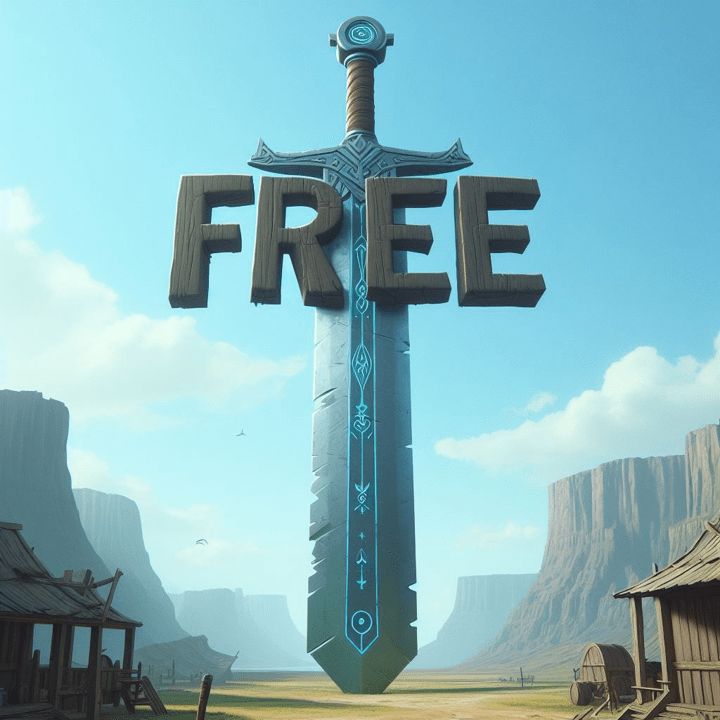
How big is “free?” So big that two-thirds of radio’s heaviest users cite the free price tag as a main reason why they continue to tune in. That’s a 7-year high, thanks in no small part to the backlash toward media subscriptions so many are now feeling.
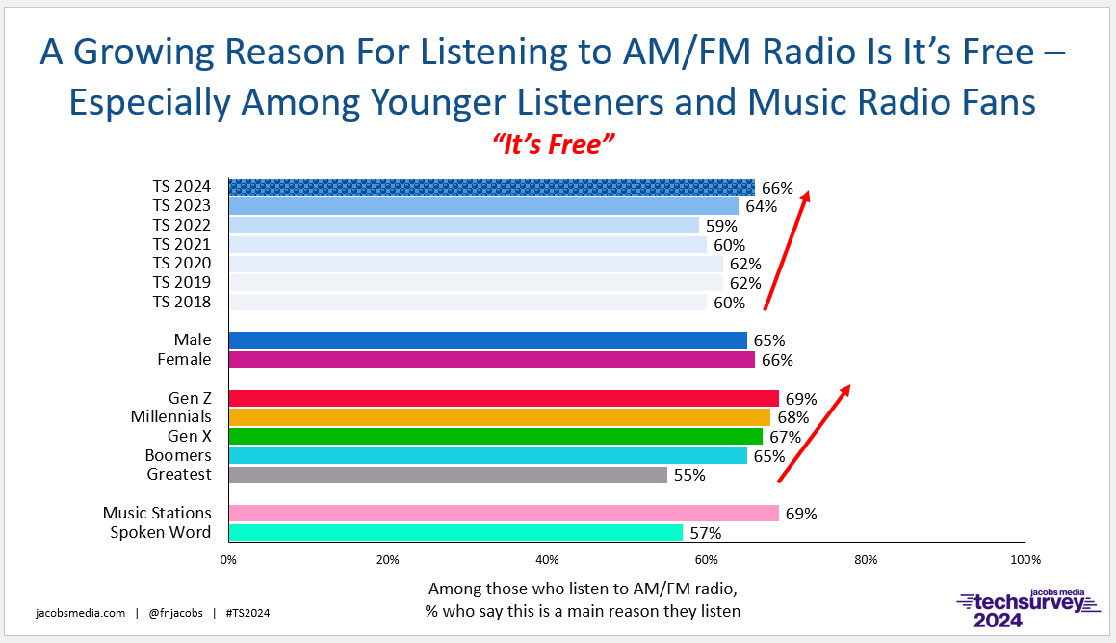
You also can’t ignore the generational appeal of “free,” a finding that syncs up with the reality Tubi is appealing to a much younger audience than the usual tired network programming.
Tubi exuded its brash attitude during last year’s Superbowl when they used the game itself to pull off what looked like a “takeover,” again drawing attention to their difference:
It takes vision – along with some pluck and attitude – to pull off Tubi’s accomplishment. But by swimming upstream and realizing how many consumers are dropping video subscription services, Tubi is able to grow its audience while attracting bigger and bigger names to their own original productions.
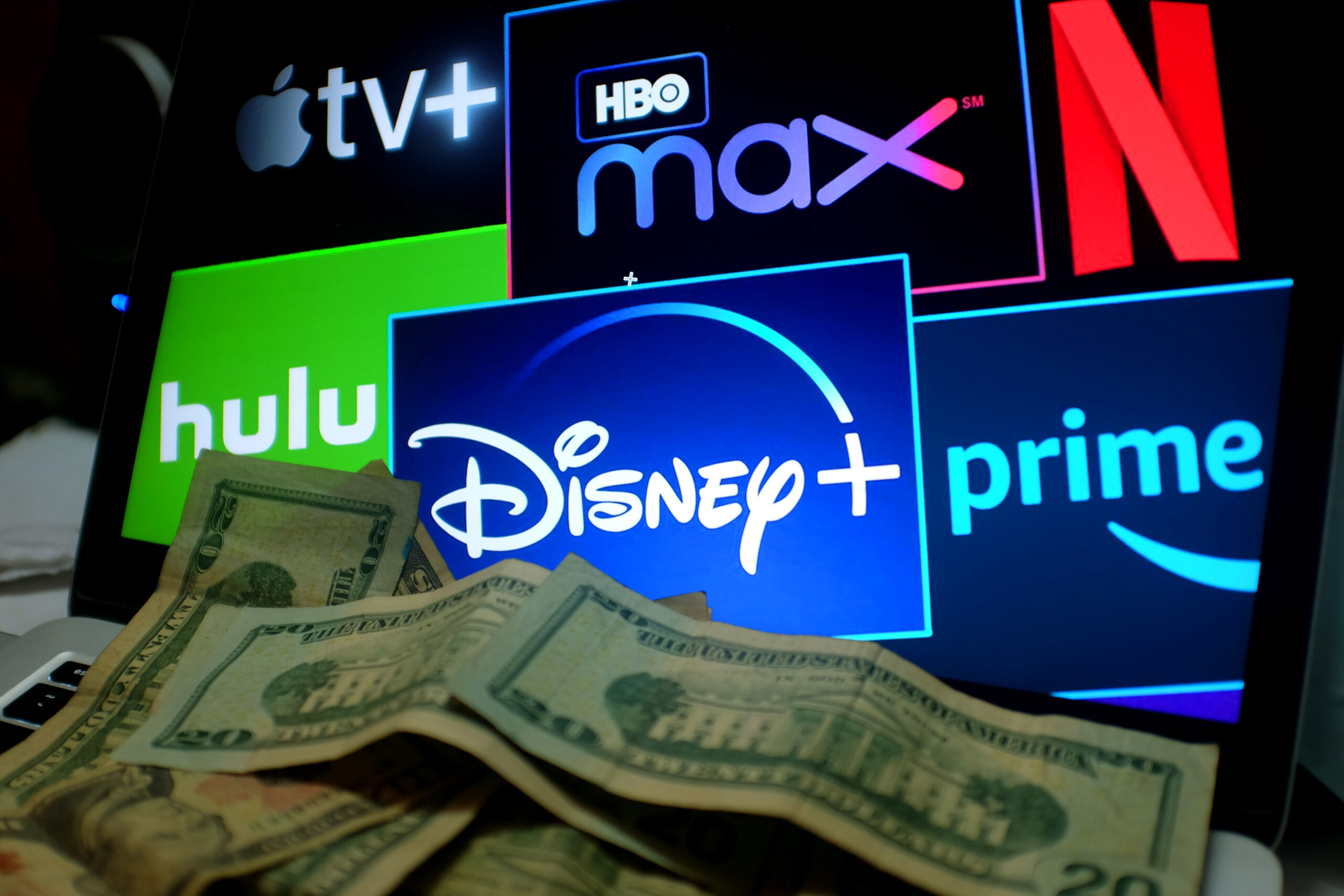
In a world of relative sameness – most people are confused by which shows and movies are on which DSPs. And can you really tell them apart from each other? Tubi’s unique differences are a big reason why they stand out from the pack.
A segue over to radio’s existential struggles as a viable medium up against deep-pocketed global media and technology mammoths suggests a different strategy. Perhaps a prime component is “free,” but also with an honest effort to declutterize the sound of most stations, and taking a machete to the commercial load.
How can a legacy player like radio mash up its inherent strengths with its environmental advantages in a media landscape that’s gotten confusing, cluttered, and yes, expensive?
As Tubi has tapped into communities with different tastes and priorities as well as those who are subscription averse, they have done more than just carved out a position. Tubi has created its own category.

Seems to me, radio did that a long time ago.
Fred Jacobs founded Jacobs Media in 1983, and quickly became known for the creation of the Classic Rock radio format. Jacobs Media has consistently walked the walk in the digital space, providing insights and guidance through its well-read national Techsurveys. In 2008, jacapps was launched – a mobile apps company that has designed and built more than 1,300 apps for both the Apple and Android platforms. In 2013, the DASH Conference was created – a mashup of radio and automotive, designed to foster better understanding of the “connected car” and its impact. Along with providing the creative and intellectual direction for the company, Fred consults many of Jacobs Media’s commercial and public radio clients, in addition to media brands looking to thrive in the rapidly changing tech environment. Fred was inducted into the Radio Hall of Fame in 2018.